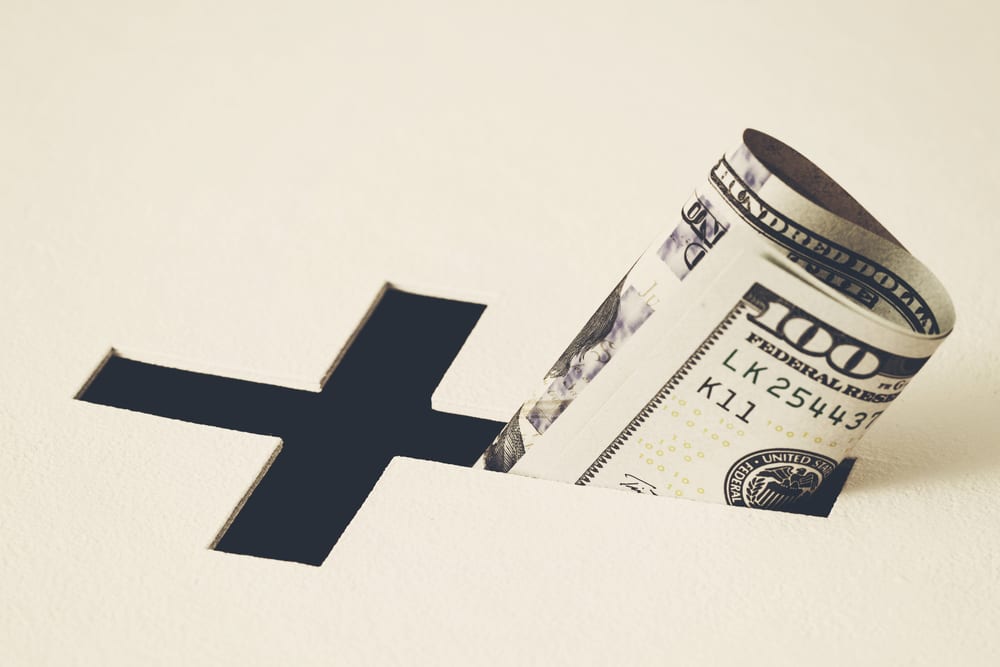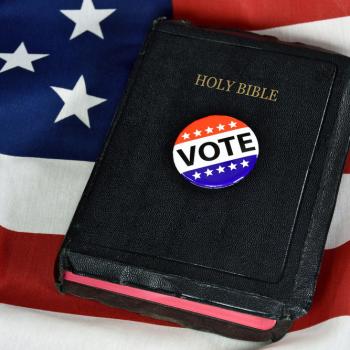Churches constantly say they want the government out of their business — and I would agree provided that was true the other way around as well — but apparently that’s not the case when it comes to taxpayer money.

The U.S. government recently passed the “Paycheck Protection Program” (PPP) offering small businesses a loan of up to 2.5 times their average monthly payroll — a loan that they don’t have to pay back if 75% of that money goes to payroll and not rent, utilities, etc. The big PPP scandal you may have heard about was how large businesses (like restaurant chains) were receiving millions of dollars while many actual small businesses received nothing at all.
But here’s a different scandal: Because non-profits were also eligible for the money, many religious institutions also applied for the cash. And they’re scooping up millions upon millions of taxpayer dollars in order to further their proselytizing.
How many churches are we talking about?
There are about 17,000 Catholic churches in the U.S. More than 12,000 applied for the cash, according to CBS News:
Pat Markey, the executive director of the Diocesan Fiscal Management Conference, an association of finance officers from Catholic dioceses, estimates that around 6,000 Catholic parishes had their applications for federal funding approved in the first round of PPP and around 3,000 have received loans so far in the second round.
Protestant churches are no different. LifeWay Research says nearly a quarter of Protestant churches applied for money and more than half of them received it.
Two in 5 Protestant pastors (40%) say their church has applied for government assistance offered through the CARES Act or the Small Business Administration, while 56% say they have not. Around a quarter (23%) of pastors say their application was accepted, which means that of those who applied, 59% were approved for assistance.
Jewish groups, too:
A representative for the The Jewish Federations of North America told CBS News that they conducted a survey on April 21 and learned that “573 Jewish organizations were approved for PPP loans, with a total value of $276 million. Among that group were 219 synagogues who received just over $50 million in loans.”
It’s true that these religious groups employ a lot of Americans, who are suffering as much as everyone else at a time when their churches or synagogues can’t meet. So you could argue that they should be eligible for that funding. But when churches don’t pay taxes in the first place, and don’t have to disclose how they use their money or where it comes from (unlike other non-profits), they’re just mooching off of taxpayers in order to further their religious beliefs. In an alternative universe where the justice system didn’t bend over backwards to accommodate faith, it could be a Constitutional issue.
Freedom From Religion Foundation attorney Andrew Seidel spells out why this funding is problematic for other reasons in a piece for The Cap Times:
… Because they entirely lack financial transparency and accountability, churches are already rife with fraud and abuse. Churches qualify for CARES Act funds even if they have never registered as a church with the IRS. Receiving these taxpayer funds could be literally both the first and last time the government ever hears of them.
There are no safeguards built into the CARES Act. It is irresponsible to provide financial support to such organizations, and doubly so without requiring transparent accounting. Taxpayer funds should only be available to nonprofits that file financial information with the IRS, even if not required to do so by federal law. Otherwise, Congress is handing out taxpayer money with no accountability whatsoever.
As Seidel says, there could be an argument made that churches, like all other businesses and non-profits, should be eligible for the money. But churches don’t play by the same rules, and that’s why this is a problem.
A lot of religious leaders spend a lot of time arguing why they should be able to ignore whatever the government says. The second they can profit off of it, though, all of that goes out the window. And it’s regular business owners who suffer as a result.
(Image via Shutterstock)




It’s Moving Day for the Friendly ..."
It’s Moving Day for the Friendly ..."
It’s Moving Day for the Friendly ..."
It’s Moving Day for the Friendly ..."